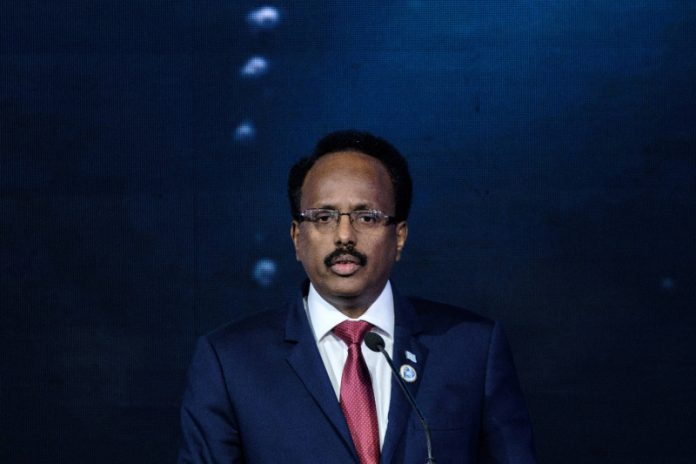Will Somalia’s Missed Election Lead to Chaos? The vote scheduled for early February was canceled, leading to uncertainty and a power vacuum in Mogadishu.
Gridlock and Uncertainty in Mogadishu
Somalis should have been awaiting the results of a national election this week. Instead, the Feb. 8 vote never took place, because the country’s leaders could not agree on the ground rules for holding it. Not only has the failure to reach a compromise undermined the democratic process, but it has also made Somalia more vulnerable to security threats and regional rivalries.
Although President Mohamed Abdullahi Mohamed—widely known by the nickname Farmajo—assured citizens that there would be no power vacuum, he is in no position to make promises. His term officially expired on Monday, when the election was set to take place. While he may have had plans to stay on as interim leader, opposition leaders are refusing to recognize him as president. Instead, an alliance of opposition parties is calling for the creation of a transitional government.
Not so universal suffrage. It’s not the first time Somalia has delayed this election. In fact, it was supposed to be held in November 2020, but in June last year, the country’s electoral commission delayed the vote over “significant technical and security challenges.”
Perhaps even more frustrating for Somalis is the existing electoral system. The country has not directly chosen a president since 1969. Instead, Somalia uses a localized version of the U.S. Electoral College system. Clan elders select delegates for 51-member electoral colleges, which in turn vote for 275 members in the House of the People, according to a power-sharing formula, while 54 members of the upper house are elected according to the representation of the federal states. Both houses then vote for the president from among a list of several candidates vying for the position.
It’s a complicated system that has excluded the vast majority of Somalia’s citizens and was meant to evolve into a more directly representative system in 2020. The coronavirus pandemic has further added to these challenges, discouraging any plans for a direct vote.
States within a state. This intricate electoral process is a response to a complex country, where decades of civil conflict created a shaky federal system. Puntland, a semi-autonomous region in the north, participates on a basis of self-interest, as does Jubaland, which at one time had its own president.
Meanwhile, Somaliland functions as a de facto independent state on the world stage, although it does not formally exist as a country, and Mogadishu doesn’t recognize its independence. Kenya’s decision to open a consulate in Somaliland’s quasi-capital, Hargeisa, and establish direct Kenya Airways flights to the city led to Kenya and Somalia severing diplomatic ties last year.
The leaders of Puntland and Jubaland are now refusing to recognize the incumbent, while Farmajo blames them for failing to reach a compromise. The regions and the central government ultimately failed to agree on key processes, including who staffs the electoral commission—the independent body tasked with overseeing the already complex election.
Security vacuum. All of this is happening against the backdrop of continued violence from al-Shabab. The Islamist fundamentalist group, which wants to establish an independent state ruled by sharia, has for years carried out terrorist acts across the country.
Al-Shabab regularly shatters Somalia’s attempts at peace. In recent years it has bombed an ice cream shop, sent a suicide bomber to a graduation ceremony, and killed dozens of civilians. To make its presence felt during the talks, the group orchestrated a roadside blast near the town where leaders were meeting on Sunday, killing at least a dozen intelligence officers.
By LYNSEY CHUTEL Source: Foreign Policy





























